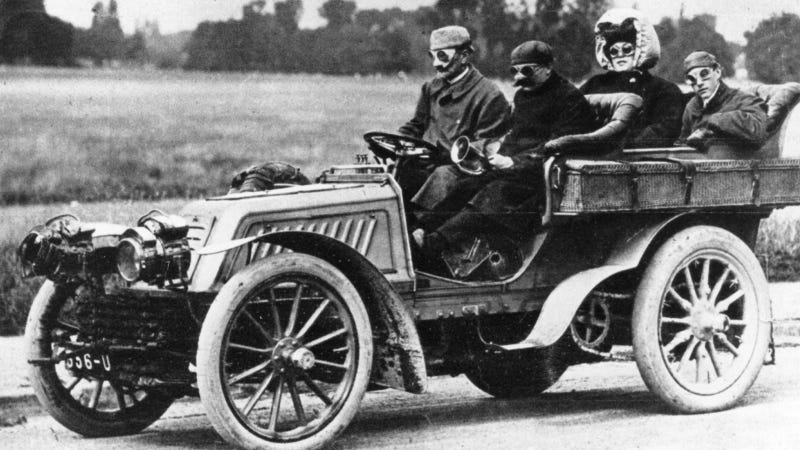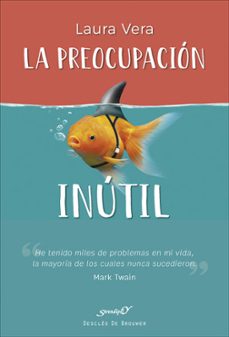Spanish Word of the Day
| August 13th, 2019 at 8:57:23 PM permalink | |
| terapined Member since: Aug 6, 2014 Threads: 76 Posts: 12501 |
When it comes to an Hispanic band, cant go wrong with Los Lobos I'm a huge fan. Seen them live a bunch of times, sometimes in small clubs which is great with their talent Here's one of my faves, Angel Dance Sometimes we live no particular way but our own - Grateful Dead "Eyes of the World" |
| October 18th, 2019 at 7:38:23 PM permalink | |
| smoothgrh Member since: Oct 18, 2019 Threads: 1 Posts: 4 | Hello! I have made my way from the Wizard of Vegas site to share the word from my junior high school Spanish textbook that I made a point to remember for the rest of my life: limpiaparabrisas. It means "windshield wipers." I've kept this word with me for 35 years. It was the wackiest word in the textbook's glossary that I've never forgotten it. I suppose it's pretty easy to remember too—something like "brushes for cleaning"? |
| October 18th, 2019 at 7:59:34 PM permalink | |
| Wizard Administrator Member since: Oct 23, 2012 Threads: 241 Posts: 6108 |
Thanks for contributing. This thread could use some new blood to get it going again. If we break down we get: limpia = clean (from the verb limpiar) para = for (don't as me why it's not por) brisas = breezes I would normally have translated the whole word as "cleaner for breezes." The word for windshield by itself is parabrisas. I was going to ask why it's not limpiaparalluvia (cleaner for rain), when I realized English has the same issue. Its a WINDshield not a rainshield. Perhaps in the early days of cars they didn't know what to call them. Thinking the primary purpose was to keep the driver's head protected against the otherwise air the head would be impacting, not the rain. However, this problem exists in no wind. So I suggest the word is a misnomer in both English and Spanish. Thoughts? Knowledge is Good -- Emil Faber |
| October 18th, 2019 at 10:30:02 PM permalink | |
| Pacomartin Member since: Oct 24, 2012 Threads: 1068 Posts: 12569 |
In American English the word windshield goes back to 1902, which is three years earlier than the British windscreen. As the Model T was not developed until 1908, I would suggest that the whole idea of having any sort of glass to protect you from wind was pretty novel. Detailed research by recalling a movie from when I was a kid, indicates that early automobile drivers wore goggles.  So windshield wipers referred to the fact that they wiped a relatively new invention of a windshield. It does not mean they were wiping away wind.  I think this photo is from the 1890s. |
| October 18th, 2019 at 11:11:24 PM permalink | |
| Pacomartin Member since: Oct 24, 2012 Threads: 1068 Posts: 12569 |
I never could get this correct, but these are the classes of meanings for the word por and para. In English we use the preposition "for" which is not Latin based but from Old English where it meant "before, in the sight of, in the presence of; as far as; during, before; on account of, for the sake of; in place of, instead of". Por 1. Travel and Communication 2. Exchanges 3. Duration 4. Motivation Para 1. Destinations 2. Recipients 3. Deadlines 4. Goals As always the basic meanings of OId English words are different from Latin words, and there is always difficulty in translating. In Old French por meant for (in order to) for (belonging to) In Spanish para means for (for the purpose of) to I suppose this final definition is the most appropriate since it "for the purpose of" cleaning the glass. garra is a claw or hook or talon. escobilla is a "little brush" |
| October 19th, 2019 at 12:32:28 PM permalink | |
| smoothgrh Member since: Oct 18, 2019 Threads: 1 Posts: 4 | Thanks folks for the elucidation of "limpiaparabrisas." I had never taken the time to learn what "brisas" actually means. That it means "breeze" is a fun translation! Recently I heard that while the U.S. term is "windshield," the UK term is "windscreen." It's like the George Carlin routine about baseball and football: in football, you penetrate the defense and enter enemy territory—in baseball, you run home to be safe! |
| October 19th, 2019 at 1:54:29 PM permalink | |
| Pacomartin Member since: Oct 24, 2012 Threads: 1068 Posts: 12569 |
My favorite Spanish word when I was a kid was "ferrocarril" because it had two double rr consonants. |
| October 19th, 2019 at 8:41:27 PM permalink | |
| Wizard Administrator Member since: Oct 23, 2012 Threads: 241 Posts: 6108 |
You're welcome. Most of the credit goes to Paco, as usual. I hope you'll stick around and maybe we can awaken this thread. Tomorrow I'll post a fresh SWD. It has been awhile. Knowledge is Good -- Emil Faber |
| October 20th, 2019 at 7:44:56 AM permalink | |
| Pacomartin Member since: Oct 24, 2012 Threads: 1068 Posts: 12569 | The 25 Most Frequently Used Verbs in English are: 1 Be 2 Have 3 Do 4 Say 5 Get 6 Make 7 Go 8 Know 9 Take 10 See 11 Come 12 Think 13 Look 14 Want 15 Give 16 Use 17 Find 18 Tell 19 Ask 20 Work 21 Seem 22 Feel 23 Try 24 Leave 25 Call Fully 20 of these 25 verbs are based on Old English words and three more entered English from Old Norse in the early medieval period. Only two verbs came from Old French. I think well over half the time that we use a verb we are using some variation of these 25 verbs. The two verbs that come from Old French have an etymology traceable back to Latin, so you would think the Spanish equivalent would be similar. But in English we have often added multiple meanings to the verb since we acquired it from the French. For instance "to try" came into English around the year 1300. It means "examine judiciously, discover by evaluation, test;" mid-14c., "sit in judgment of," also "attempt to do," from Anglo-French trier (13c.), from Old French trier "to pick out, cull" (12c.), from Gallo-Roman *triare, of unknown origin. The ground sense is "separate out (the good) by examination." Sense of "subject to some strain" (of patience, endurance, etc.) is recorded from 1530s. To try on "test the fit of a garment" is from 1690s; to try (something) on for size in the figurative sense is recorded by 1946. When you go to the dictionary, here are just some of the ways to express "try" in Spanish: Intentar - to attempt Probar - to test, to taste Ver - to try a law Juzgar - to try a person in court Probarse - to try on Poner a prueba - to test a person or your patience Medirse -- to measure, to try on Experimentar -- to try by experimentation Tentar - to examine by touch Purificar - to purify a metal Tratar -- to treat, to handle Procurar -- to adopt measures for obtaining, to try Of the 25 verbs only "to use" in English and "usar" in Spanish have nearly identical meanings. The Old English words that meant "to use" were notian, nēotan, nyttian and brūcan. They have vanished from common speech and exist only in high level poetry. |
| January 17th, 2020 at 10:25:49 AM permalink | |
| Pacomartin Member since: Oct 24, 2012 Threads: 1068 Posts: 12569 | I thought I'd give this a bump. inútil The most literal translation is "without utility", just as the English word insane means "without sanity".  The Inútil Bay was thus named in 1827 by Captain Phillip Parker King, because it afforded "neither anchorage nor shelter, nor any other advantage for the navigator". The word can also mean "hopeless". In the image below it seems to mean "pointless" in the sense of mindless preoccupations.  It can also be quite an insulting word. Good for politicians or people you dislike. The phrase "inútil culo" means "worthless ass".  |

